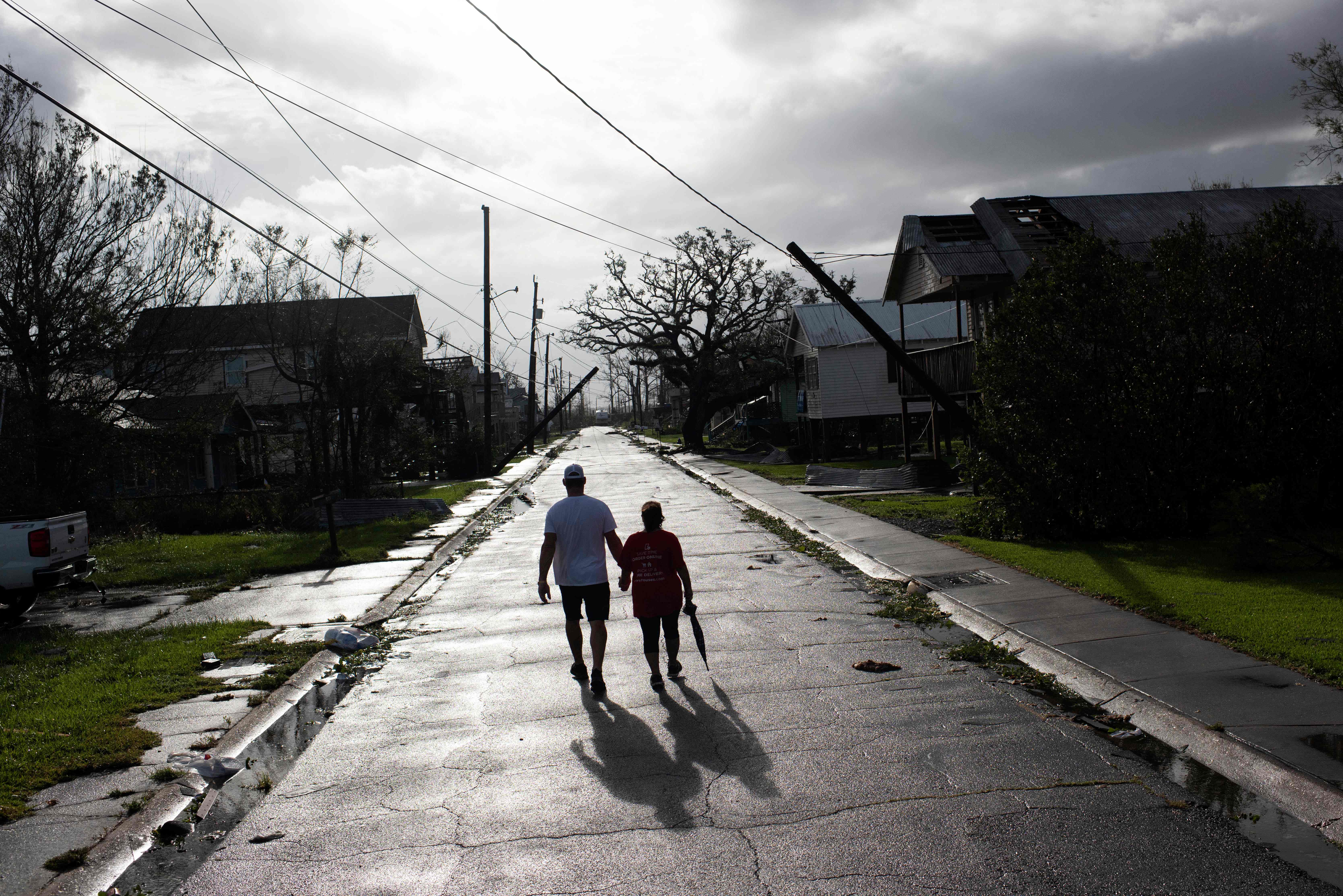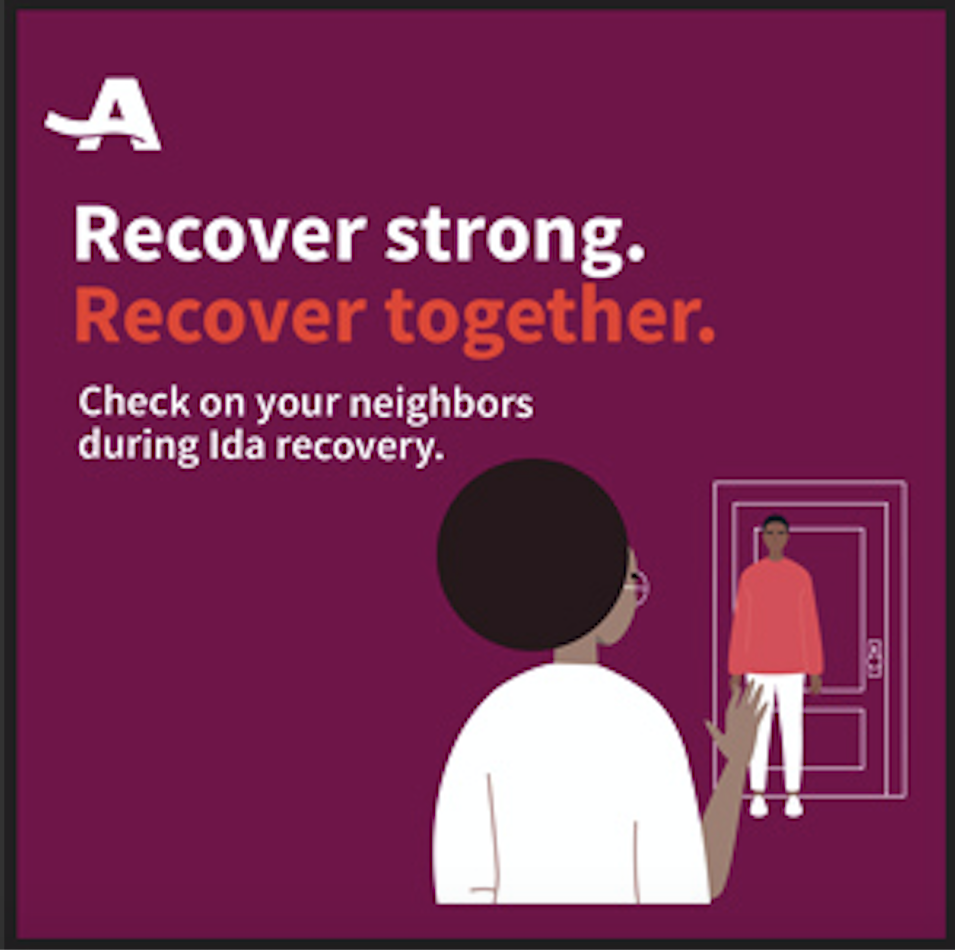AARP Hearing Center
More than a month after Hurricane Ida made landfall at Port Fourchon, Louisiana, thousands of homes and businesses are still without power. The storm’s 150 mph winds decimated homes, toppled trees and prompted mass evacuations from the state’s coastal communities. Many residents have either not yet returned or no longer have homes to return to, and older residents who may have medical issues or who may be unable to leave their homes are among the most impacted.

As cleanup efforts continue, here’s a list of where to go for information and assistance — and opportunities to help those who have been affected:
Recovery Resources
Avoiding Scams and Fraud
- When dealing with contractors for home repairs, flood damage or debris removal, check references, don’t give money up front and ask your insurer if it has any preferred local contractors. Learn more about how to avoid fraud from AARP Louisiana’s tele-town halls.
- The Federal Emergency Management Agency (FEMA) keeps a running list of disaster-related rumors and scams. If you suspect you’re being scammed, call the Louisiana Attorney General’s office at 225-326-6705.
- The Louisiana State Licensing Board for Contractors (LSLBC) maintains a resource page and offers tips to avoid scams when hiring a contractor.
- Learn more about how to spot a scam from AARP’s Fraud Watch Network.
Government Assistance
- Fill out the anonymous questionnaire on DisasterAssistance.gov or call 800-621-3362 for information about federal grants, loans and other resources that may be available. More than $800 million in grants and loans has already been distributed by FEMA to people impacted by Hurricane Ida.
- FEMA’s Hurricane Ida information page offers more information about how to apply for aid and tips for cleaning, rebuilding and post-storm safety.
- Learn more about hurricane aid and FEMA resources from AARP Louisiana’s recent tele-town halls.
- The Governor’s Office of Homeland Security and Emergency Preparedness posts updates on the state’s storm response.
There is still plenty of work to be done post #HurricaneIda. It doesn't hurt to check on your neighbor, especially your older neighbors that might still be vulnerable. pic.twitter.com/3oG3J0Nxa7
— AARP Louisiana (@AARPLouisiana) October 1, 2021
Insurance
- If you’re uninsured — or if your insurance doesn’t cover damage related to the hurricane — apply for disaster assistance through FEMA.
- If you have homeowners or renters insurance, FEMA recommends filing a claim with your provider ASAP.
- The Louisiana Department of Insurance has information about how to assess what sorts of damages are covered by your plan and to file insurance claims.
Fuel and Electric Power
- Check the Louisiana Public Service Commission power outage report or the Entergy and Cleco power outage maps to see which areas are impacted.
- The state is dealing with widespread gasoline shortages. Use GasBuddy's interactive fuel map to find stations that are still selling gas.
- Learn more about how to safely operate portable generators from AARP Louisiana.

Food and Supplies
- Find a local food bank through the Feeding Louisiana partnership.
- Fill out the Mutual Aid Disaster Relief Network’s information sheet if you need help cleaning and rebuilding or if you need clean bedding, clothes, toiletries, medical supplies, baby or pet supplies, or help translating documents for flood insurance. You can also email mutualaiddisasterrelief@gmail.com.
Shelter
- Call 211 or connect with your parish Office of Homeland Security and Emergency Preparedness.
- The American Red Cross has opened shelters in Louisiana and Mississippi. Call 211 or 800-733-2767, or go to the Red Cross website to find a shelter near you. You can also download the Red Cross emergency or hurricane apps on your smartphone.

Flooding and Road Closures
- Check the Louisiana Department of Transportation and Development’s traffic and road closure tool to plan a route to or from your home, or call 888-762-3511.
- Avoid floodwater if possible and learn more about how to respond to water damage to your home or business from the Louisiana Department of Health.
AARP also encourages those impacted by the storm to check in on their neighbors and loved ones as recovery efforts continue.
Donate or Volunteer
- New Orleans officials encourage donations to United Way of Southeast Louisiana and the Greater New Orleans Foundation.
- Direct Relief is collecting donations and has been sending emergency medicine and supplies to people in New Orleans, Shreveport, Baton Rouge and other impacted communities.
- Catholic Charities of Acadiana is collecting donations and sending volunteers to help clean up after the storm.
- Volunteer Louisiana, in partnership with AmeriCorps and the Louisiana lieutenant governors’ office, offers a sign-up sheet that will alert you to future volunteer opportunities.
- All Hands and Hearts is organizing donations and volunteers and is anticipating a need for chainsaw work, roof tarping and mold sanitizing.
- GoFundMe set up a centralized page for all verified campaigns to help people impacted by Hurricane Ida, including a drive organized by the Louisiana Association of the Deaf to support those in the deaf community who have been impacted.
- SBP, an organization originally launched to help communities recover from Hurricane Katrina, is collecting donations and helping people complete FEMA applications, rebuild their homes and avoid scams and fraud.
This story, published on Aug. 31, was updated Oct. 1 with more resources available to people impacted by Hurricane Ida.































































